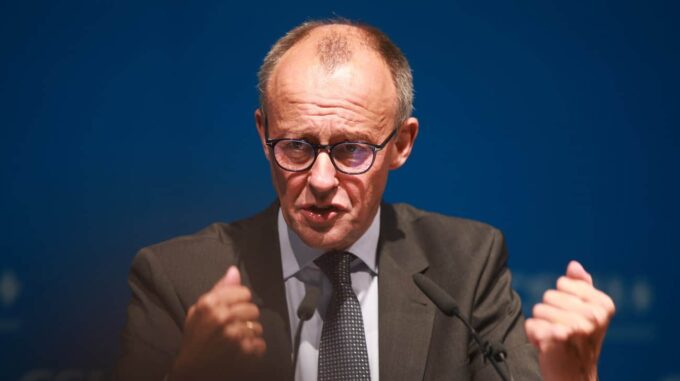The European Union is preparing for decisive action in response to the situation with Russia’s invasion of Ukraine

According to Federica Mertc, the EU High Representative for Foreign Affairs and Security Policy, Brussels is awaiting specific agreement from Russian President Vladimir Putin regarding the conditions for ending the war. Otherwise, the European Union plans to intensify economic pressure on Moscow, considering the introduction of new sanctions across various sectors—from energy to finance. On Tuesday, Mertc spoke at a press conference alongside his Greek colleague, Foreign Minister Nikos Dendias. During the joint briefing, he provided detailed remarks on the situation surrounding the Ukrainian conflict and trends toward diplomatic resolution. “We all expect positive steps from Putin,” the politician emphasized. “If we do not see real progress in negotiations this week, the European Union will unite and initiate a process of significantly strengthening sanctions.” Mertc added that this involves reinforcing existing economic restrictions in energy, finance, and other critical areas. In such a case, EU member states would prepare for large-scale measures of isolating Russia to force it to halt its aggression and return to diplomatic dialogue. An important aspect is also the diplomatic efforts toward conflict resolution. According to the EU high representative, EU leaders have agreed with Ukrainian President Volodymyr Zelenskyy that the latter may participate in negotiations with Russia in Istanbul this week. The main condition for Ukraine’s involvement is Russia’s cessation of bombings that devastate the country’s civilian population. Mertc also expressed respect for Zelenskyy’s willingness to make compromises and concessions in a process that could lead to the long-anticipated ceasefire. At the same time, he indicated that now is not the time for further concessions: “I believe that further compromises and concessions are no longer wise, especially given the scale of destruction and human suffering.” At the end of last week, leading European countries—Germany, France, the United Kingdom, and Poland—issued a call to Russia to agree on a 30-day ceasefire starting immediately on Monday. They stated that if Russia refuses to agree to a cessation of hostilities by May 12, the European Union will be forced to impose new, stricter sanctions. The German government confirmed that if this condition is not met, Berlin, together with its partners, will begin preparations for targeted economic pressure on Moscow. However, despite this sharp rhetoric, on May 13 it was announced that European leaders are still willing to wait and see the outcome of a possible meeting between Ukrainian President Volodymyr Zelenskyy and Russian President Vladimir Putin in Turkey. They hope that the diplomatic dialogue that may take place will offer a chance to find ways to de-escalate the situation and potentially reach an agreement without escalating the conflict further, even if final decisions on sanctions are made later. Thus, the situation remains tense but flexible in terms of diplomatic options and strategic postponement. Brussels continues to aim at preparing the ground for a possible compromise agreement while not excluding measures of economic pressure that could accelerate and intensify efforts to pressure Moscow if concessions are not achieved. The main goal is to end the war and restore peace in Ukraine, but the path to this remains open and highly dynamic.

